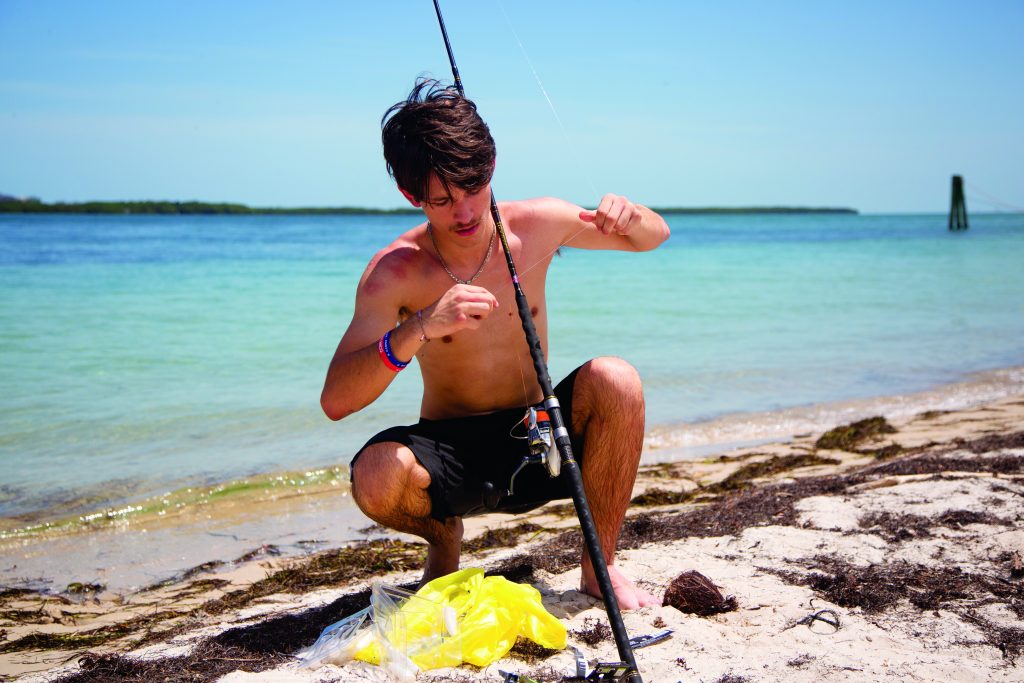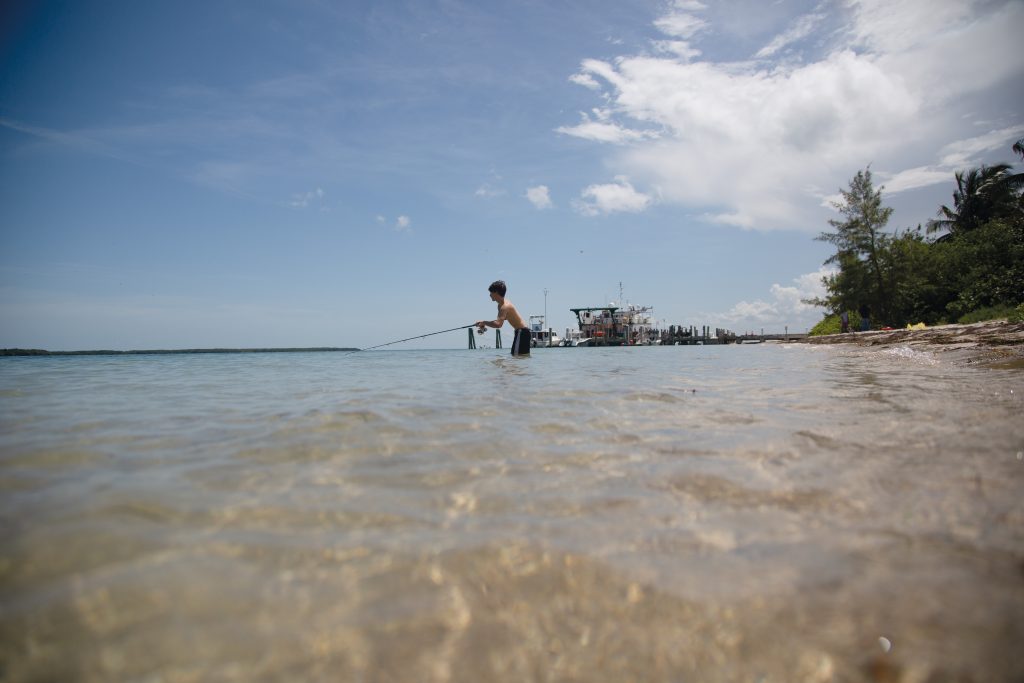Amendment 2: Will the right to hunt and fish be constitutionally protected?
By Daniella Vega
New World School of the Arts/Montage
Each summer, Aidan Galan and Evan Castro spend four to five days a week casting their fishing lines over Bear Cut Bridge, which links Key Biscayne and Miami. They catch tarpon, snook and even the massive permit fish.

ANGLER LIFESTYLE: Florida fishermen are required to use specific gear to protect the ecosystem, like this non stainless steel rod and natural bait. However, they may also receive protection with the passage of Amendment 2. Photo by Emily Romero, Miami Senior High
The two friends, both seniors at Christopher Columbus High School, say fishing is more than just a sport, “It’s just you and the fish,” says Galan, who has known the angler lifestyle since he was 3.
“You get to be one with yourself,” he said. “You don’t have to deal with any commotion.”
Castro, who started fishing when he was 10, agrees.
“I’d rather be in nature than be at home sitting on a couch and watching TV,” Castro said.
The two teens don’t let their passion for fishing interfere with their strict adherence to fishing regulations. Like many other anglers in the area, they follow state saltwater fishing regulations on fish size, season and number of fish caught (known as bag limit).
For example, the Florida Fish and Wildlife Conservation Commission says that a fisherman can catch no more than seven Black Sea Bass a day that are up to 13 inches long in the Atlantic. Fishing gear is also regulated; hooks that prevent organ damage to several fish species are required when fishing in and around reefs.
Hunting is also highly regulated by the FWC: To take certain animals, sportsmen must pay attention to the hunting zone, based on county, along with the season, which will directly affect the weapon that can be used.
Phil Hillary, assistant director at Zoo Miami, said the FWC uses regulation formed on scientific research for both fishing and hunting laws by examining population numbers.
“As populations grow, they might increase quota,” Hillary said. “They will also decrease quota as we see populations change. So that science-based conservation is probably key to making sure that these animals are around for generations to come.”
These factors can make it difficult to hunt and fish in the state. Despite this, there is a possibility that both may become constitutionally protected in November.
Amendment 2 will ask voters to decide if hunting and fishing should become a constitutional right and “preferred means of responsibly managing and controlling fish and wildlife.” Although the FWC will still retain its executive powers, fishing and hunting will receive greater protection in the state.

Travis Thompson, executive director for All Florida, a conservationist community that urges the protection of Florida’s ecosystem, said protection will provide “a proactive move” to ensure that we have this heritage protected for a long time.
For the amendment to pass, at least 60% of voters must approve the measure.
Fishing and hunting are considered key components of the Florida economy and culture.
Besides the economic benefits, fishing and hunting are cherished American traditions, said Thompson, a fifth-generation Floridian who hopes to preserve the “opportunity to interact with wild Florida in ways that most people don’t get to.”
Chuck O’Neal, director of NoTo2, a political committee opposing the amendment, is concerned about the threat it poses to Florida’s wildlife, especially the black bear population.
O’Neal says that making hunting a constitutional right could get out of hand and wipe out 3,000 to 4,000 bears. He said the recently signed House Bill 87 that permits shooting bears for self-defense complements the amendment.
“When you empower 22 million people all of a sudden to shoot a black bear, then it’s easy to see how the entire species could be wiped out within a year,” O’Neal said.
The amendment also could impact private property rights and prohibit landowners from denying hunters from hunting on their land.
“People say they own 10 acres or 5 acres or even an acre [of land] … and there’s hunters chasing deer or chasing bears through their yards,” O’Neal said.
Concerned with the conservation of Florida’s backyard many say the passage of amendment 2 will greatly affect younger generations as it will determine the future of the relationship between Florida’s residents and its ecosystem.
Hillary says that as a child, he explored the wilderness and finds it crucial that his children and grandchildren can do the same.
“It takes stewardship of the land and the animals to make sure they’re here for generations,” Hillary said. “If we don’t find value in it, they won’t be here for long.”